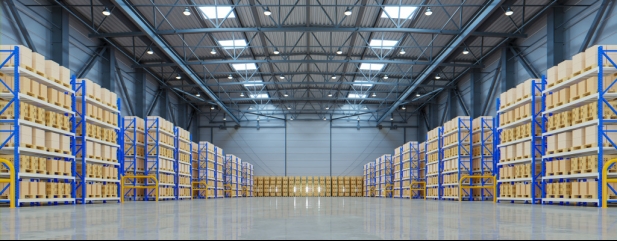Archived article
Please note that tax, investment, pension and ISA rules can change and the information and any views contained in this article may now be inaccurate.
Global supply chains appear to be easing which is good for the economy

There is growing evidence from industrial surveys that supply chains are starting to ease in some areas of manufacturing, although the global economy is still far from ‘normal’ as we enter 2023 and a return to growth is a long way off.
According to the IFO research institute, companies in Germany are experiencing ‘noticeably fewer’ material shortages than previously.
In December, 50.7% of manufacturing companies surveyed said they had experienced problems compared with 59.3% in November, marking three consecutive months of easing supply shortages.
Shortages were still acute for makers of cars and industrial equipment, but those relying on commodities such as chemicals, paper or raw metals saw far fewer problems, with even timber and wood products for the building industry in reasonable supply.
The December Global Manufacturing Purchasing Managers Survey, produced by J.P.Morgan (JPM:NYSE) and S&P Global (SPGI:NYSE), flagged ‘signs that the outlook for production volumes may be stabilising, as business optimism rose to a four-month high and the cyclically sensitive new orders-to-finished goods inventories ratio edged higher’.
The survey said input inventories fell as companies were able to use ‘safety stocks built up in response to supply disruptions earlier in 2022’.
There was also good news on prices, as the rate of inflation in input and output costs fell to its lowest in two years.
Anecdotally, several UK firms have pointed to easing supply chain pressures of late.
Mobility solutions group Redde Northgate (REDD) and logistics firm DX (DX.:AIM) both told Shares recently that the supply of light commercial vehicles, essential for both their businesses, had improved significantly since the summer.
On 4 January computer board and systems maker Concurrent Technologies (CNC:AIM) raised its revenue forecast for 2022 thanks to an easing of supply chain pressures which enabled it to step up production in November and December resulting in record sales.
It isn’t all good news, however, as the same industrial surveys are pointing to a sharp slowdown in new orders as the economy cools.
According to the Global Manufacturing PMI Survey, new orders fell at the quickest pace for over two-and-a-half years in December with new export business ‘declining to one of the greatest extents since mid-2020’.
The UK Manufacturing PMI Survey says the decline in new business in December was ‘worryingly steep, as weak domestic demand was accompanied by a further marked drop in new orders from overseas’.
Material technology group HEIQ (HEIQ) warned last week that its customers were ‘more hesitant to invest in innovations’, leading to delays in orders and milestone payments, causing its shares to fall 50% in a day.
Important information:
These articles are provided by Shares magazine which is published by AJ Bell Media, a part of AJ Bell. Shares is not written by AJ Bell.
Shares is provided for your general information and use and is not a personal recommendation to invest. It is not intended to be relied upon by you in making or not making any investment decisions. The investments referred to in these articles will not be suitable for all investors. If in doubt please seek appropriate independent financial advice.
Investors acting on the information in these articles do so at their own risk and AJ Bell Media and its staff do not accept liability for losses suffered by investors as a result of their investment decisions.
Issue contents
Case study
Editor's View
Feature
Great Ideas
News
- The case for a big rebound in growth stocks in 2023
- Vodafone stock at 25-year low as attention turns to cutting debt
- Oracle shares up more than 40% in three months
- Yet more evidence that the computer games industry has lost its pandemic mojo
- Why shares rallied on a stronger-than-expected US jobs number
- What do Next’s results tell us about the outlook for the retail sector?

 magazine
magazine








